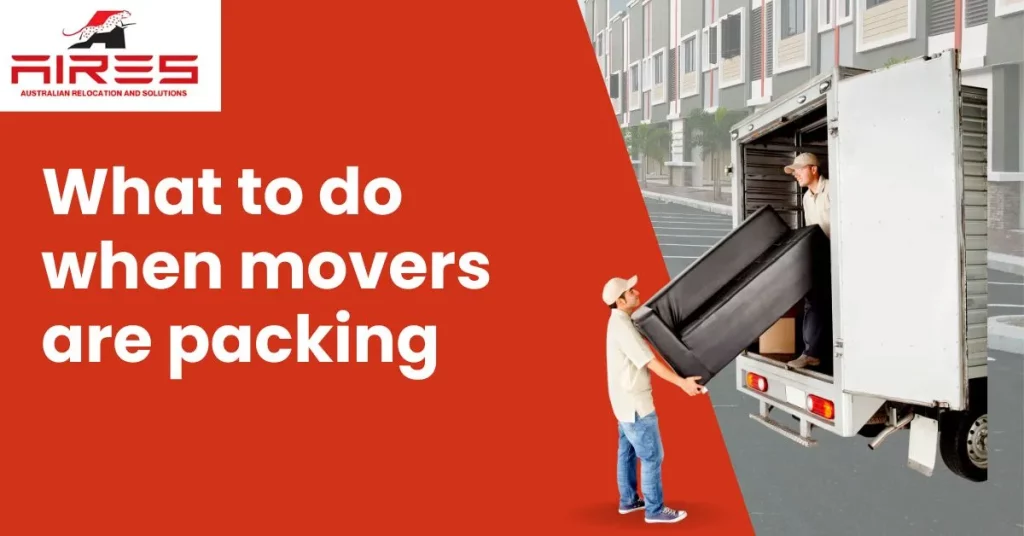What to Do When Movers Are Packing
Introduction
Moving to a new home can be both exciting and overwhelming. However, moving can be pretty stressful, especially regarding packing. Many individuals hire professional movers to help them with this laborious task. This article will discuss essential tips and strategies for ensuring a smooth packing process when movers are involved.
Understanding the Packing Process
The Role of Professional Movers
When movers are packing, it’s essential to understand their role in the moving process. Professional movers are experienced and skilled individuals trained to handle and pack belongings efficiently and safely. They can significantly reduce the time it takes to pack your belongings and minimize the risk of damage during transit.
Planning and Preparation
Before the movers arrive, proper planning and preparation are crucial. Create a comprehensive checklist of all the items that must be packed and moved. Communicate any specific instructions or special requirements to the movers in advance.
Sorting and Decluttering
Packing presents an excellent opportunity to declutter your belongings. Before the movers start packing, take the time to sort through your possessions and get rid of items you no longer need or use. Donate, sell, or dispose of these items responsibly.
Packing Materials and Supplies
Ensure that you have all the necessary packing materials and supplies ready. This includes sturdy boxes in various sizes, packing tape, bubble wrap, packing peanuts, furniture blankets, and other protective materials. Having everything prepared will streamline the packing process.
Packing Strategies for a Smooth Move
Room-by-Room Packing
To maintain organization, approach the packing process room by room. This method will help keep similar items together, making it easier to unpack and set up in your new home. Clearly label each box with its contents and the room it belongs to.
Labelling and Organization
Labelling is vital to a smooth move. Use colour-coded labels or a numbering system to categorize boxes based on priority or room. This will make it easier for the movers to know where each box belongs in your new home, saving you time and effort during unpacking.
Fragile and Valuable Items
Take special care of fragile and valuable items. Wrap them individually with bubble wrap or packing paper and mark the boxes as “Fragile” to alert the movers. Consider transporting valuable items, such as jewellery or important documents, personally.
Essentials Box
Pack an essentials box containing items you’ll need immediately upon arrival at your new home. This box should include items like toiletries, a change of clothes, important documents, and chargers.
Tips for Efficient Packing
Pack Early and Gradually
Start packing as early as possible to avoid last-minute rushes. Packing gradually lets you focus on each room and ensures you don’t forget anything important.
Properly Securing Boxes
Securely tape and seal all boxes to prevent them from opening during transit. Reinforce the bottom of the boxes with extra tape to handle the weight of the contents.
Maximizing space
Make the most of the available space in each box. Fill gaps with soft items like clothing or linens to prevent shifting during transport.
Utilizing Odd-Shaped Items
Use special cartons or crates for odd-shaped items that don’t fit in standard boxes. Movers can provide these speciality containers for added protection.
What to Do During the Packing Process
Supervising the Packing
While professional movers are skilled, it’s still essential to supervise the packing process. Be available to answer any movers’ questions and provide guidance when needed.
Communicating with Movers
Maintain open communication with the movers throughout the packing process. Inform them of specific handling instructions for certain items or any changes in the moving plan.
Addressing Concerns and Questions
If you have any concerns or questions about the packing, don’t hesitate to voice them to the movers. Addressing issues promptly can prevent misunderstandings and ensure a successful packing experience.
Coping with Stress and Emotions
Recognizing the Emotional Impact
Moving can be emotionally taxing, especially if you’ve lived in your current home for a long time. Take a moment to acknowledge and process your emotions.
Self-Care and Relaxation Techniques
Engage in self-care activities to reduce stress during the moving process. Take breaks, practice deep breathing, meditate, or engage in activities that help you relax.
Seeking Support
Reach out to friends or family members for Support during the moving process. Having someone to talk to can make a significant difference in handling the emotional aspects of moving.
What to Do After Packing
Final Checks and Preparations
Before the movers depart, conduct a final check to ensure all belongings are packed and accounted for. Double-check rooms, cabinets, and storage spaces to avoid leaving anything behind.
Tipping Movers
Tipping is a common practice to show appreciation for a job well done. If you’re satisfied with the movers’ services, consider giving them a tip.
Monitoring the Move
Stay informed about the move’s progress if you’re not travelling with the movers. Coordinate with the moving company to receive updates and track the shipment.
Conclusion
Moving can be daunting, but with professional movers and careful planning, it becomes manageable. By following the packing strategies outlined in this article and taking care of your emotional well-being during the process, you can make your move a successful and stress-free experience.

